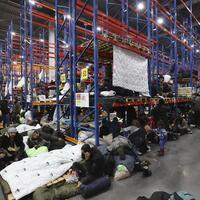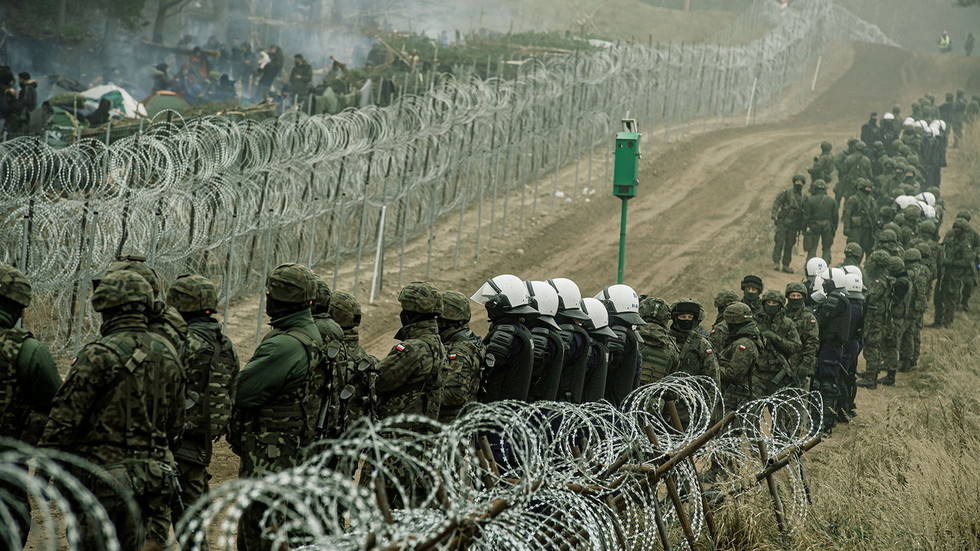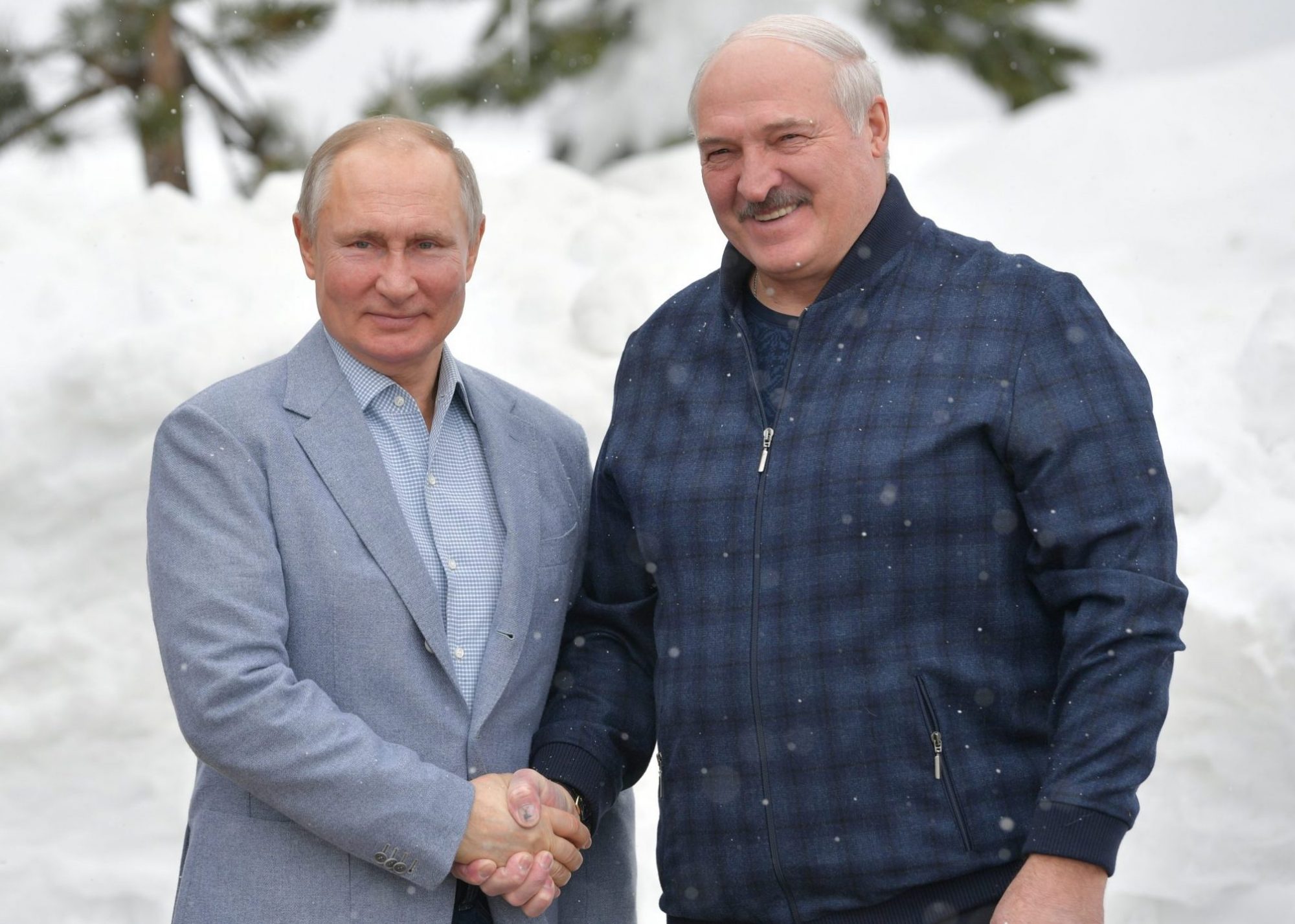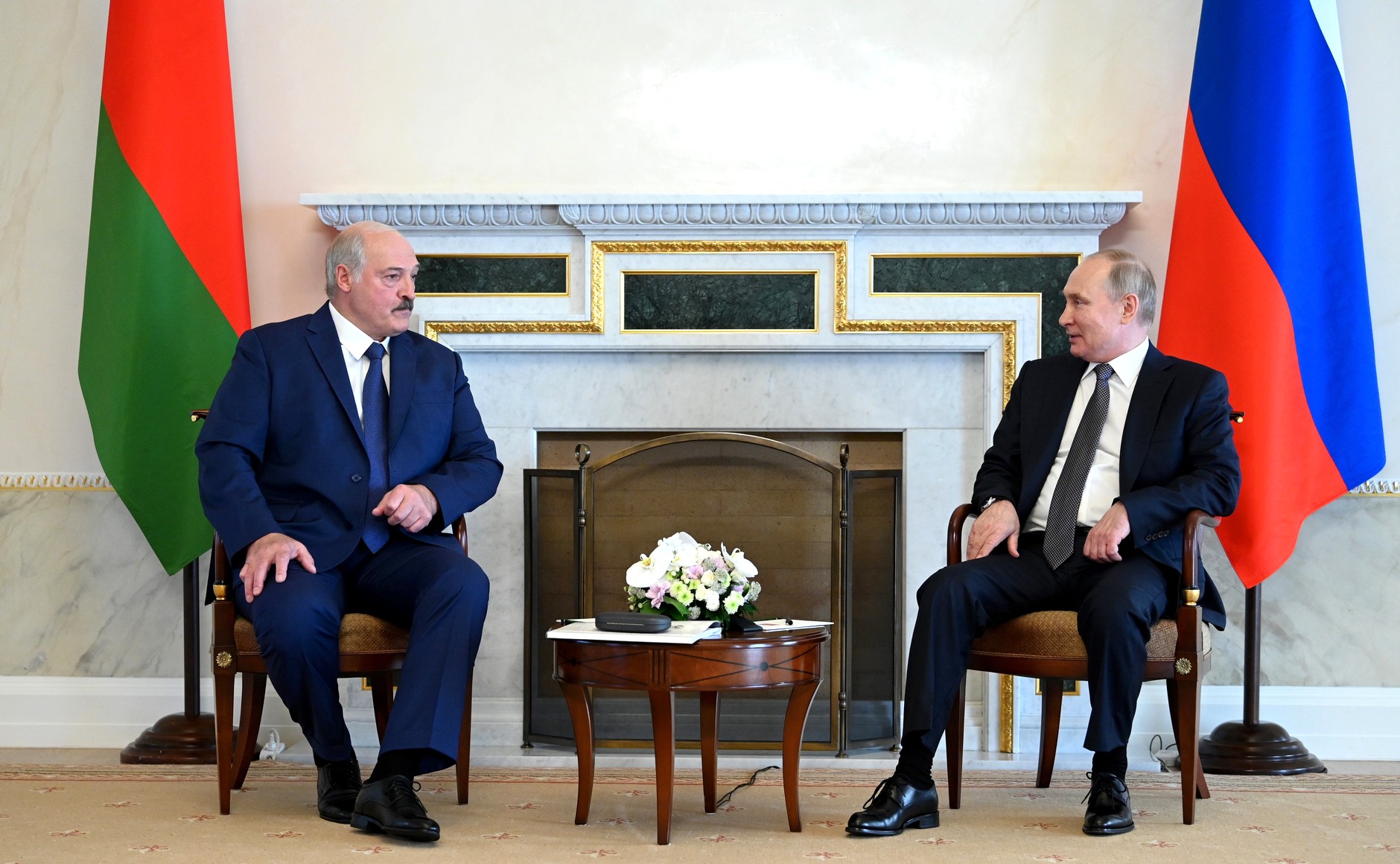In early July 2021, Aleksandr Lukashenko, president of Belarus, began a coldblooded campaign to strong-arm the EU into relaxing its sanctions. Those sanctions had been placed on Belarusian officials and entities for what the EU called “violence, repression, and election fraud.” Lukashenko’s 2020 “reelection” was widely seen as fraudulent, his crackdown on the popular protests that followed was brutal, and he forced down a Ryanair Flight 4978 in order to arrest leading opposition journalist Roman Protasevich who was a passenger.
In response to the first EU sanctions, Lukashenko announced that he would flood the EU with migrants. Belarusian authorities and the state-controlled airline Belavia proceeded to package attractive “tour” offers for Middle Eastern travelers, and loosened visa requirements. Hopeful migrants were promised easy transit to the EU through Belarus, and on to a better life.
Thousands of migrants from the Middle East, particularly Yezidis and Kurds from Iraq, responded to Lukashenko’s enticements, but instead found a situation dramatically different from what he had promised. Belarusian border guards directed migrants to cross at the borders with Poland, Latvia and Lithuania, leading all 3 countries to declare a state of emergency at those borders. Poland pushed the migrants back with tear gas and water cannons.
Belarusian border guards also refused to allow the migrants to either return to Belarus, or to return home, leaving more than 4,000 trapped in the forest at the Poland/Belarus border. A number died from exposure and lack of food.
EU member states, along with the US and others, have to date imposed 5 rounds of sanctions against Lukashenko and Belarusian individuals and entities associated with facilitating the illegal trafficking of migrants to the EU.
Throughout the crisis, Lukashenko continued to have strong support from Russia, its primary political and economic benefactor. While Russian President Vladimir Putin has taken every opportunity to criticize the EU for its anti-Belarus stance and its handling of the crisis, he’s also trying to stem the impetuousness of Lukashenko, an increasingly problematic and unmanageable ally.
When Lukashenko recently responded to the prospect of yet more EU sanctions with a threat that proved unacceptable to Putin — that he would close the pipeline carrying natural gas from Russia to Europe — Putin quickly warned that the interruption of Russian gas supplies to the EU would damage relations between Belarus and Russia. Putin’s spokesman told reporters: “Russia was, is and will remain a country that fulfills all of its obligations in supplying European customers with gas.”
It is also a fact, however, that Lukashenko’s migrant strategy has created a difficult ethical and political situation for the European Union and its members. According to Article 19 of the EU Charter of Fundamental Rights, “collective expulsions are prohibited.” Also, Article 4(4) of the Return Directive under EU law prescribes minimum rights for “persons apprehended or intercepted in connections with irregular border crossing.”
But since 2016, over the outcry of human rights groups, the EU has outsourced its border security, thereby abrogating its legal responsibilities per its own laws. The EU has paid not only Turkey, but also Moldova, Georgia, Azerbaijan, Armenia, Jordan, Egypt, Libya, Tunisia and Morocco to keep migrants from crossing into the EU. In many of these countries, migrants are denied the right to medical care, legal support, and the possibility of resettlement.
No doubt that Lukashenko has, in recent years, seen the success that countries bordering the EU have had in using migrants as weapons to obtain cash or other benefits.
The geopolitical implications of the current border crisis, however, go far beyond the borders of Poland, Belarus, and even the EU. There has of late been significant movement in integration of the Russian and Belarusian economies, as well as joint military exercises and a growing Russian military presence in Belarus. It would now appear that the current border crisis could hasten a situation that Moscow seemed to see as a strategic priority: unification, or annexation of Belarus.
From Brian Whitmore, Senior Fellow at The Atlantic Council’s Eurasia Center:
Protestations by senior Russian officials that there are no plans to unify Russia and Belarus are a mirage and a deliberate diversion. An official merger or annexation is not necessary. The Kremlin is achieving its strategic goals in Belarus stealthily, steadily, and methodically. And the strategic implications of this “soft annexation” for the United States and its NATO allies are enormous.










